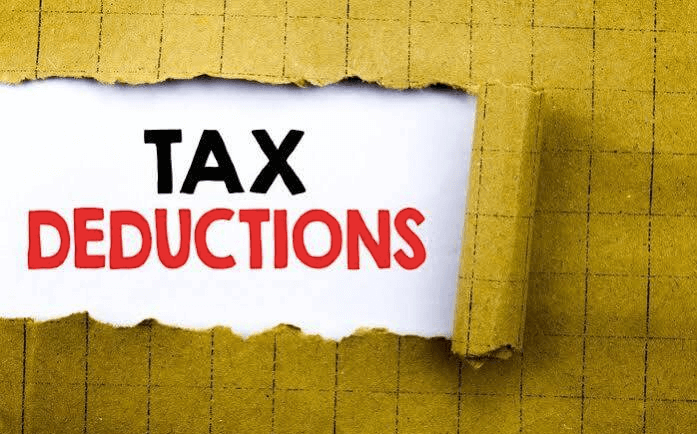
When it comes to managing your finances, personal loans can be a valuable tool. They provide the funds needed to cover various expenses, whether it’s for consolidating debts, funding a wedding, or handling emergency medical bills. However, did you know that personal loans can also offer some tax benefits? Personal loan tax deduction, how they work, and the potential advantages they can provide for taxpayers.
Many individuals rely on to meet their monetary needs. Whether it’s a large expense, such as home renovations, or an unexpected event, like a medical emergency, personal loans provide a quick and accessible solution. However, not everyone is aware of the potential tax benefits that personal loans can offer.
Personal Loan Tax Deduction Explained
What is a Tax Deduction?
Before delving into personal loan tax deduction, let’s understand the concept of tax deductions. A tax deduction is a specific overall amount of taxes they owe. Deductions help to lower your tax liability, putting more money back into your pocket.
Are Personal Loans Tax Deductible?
In general, personal loans are not considered tax-deductible. This is because they are typically taken for personal expenses, not specific investments or business purposes. However, there are specific situations where the interest paid on a personal loan might qualify for a tax deduction.
Conditions for Personal Loan Tax Deduction
To be eligible for a tax deduction on the interest paid for a personal loan, the loan must have been used for qualifying expenses that the tax laws deem deductible. Common scenarios include using the loan for home improvements, funding a small business, covering education costs, or paying for medical expenses.
Types of Personal Loans Eligible for Tax Deduction
Home Improvement Loans
Using a personal loan to improve your home can qualify for a tax deduction. The improvements must add value to your property or adapt it to new uses, such as adding a new room or renovating a kitchen.
Business Expansion Loans
If you use a personal loan to finance your business’s expansion or invest in a business venture, the interest paid on the loan might be tax-deductible. However, keeping proper documentation and demonstrating that the loan was genuinely used for business purposes is essential.
Education Loans
Personal loans used to cover education expenses, such as tuition fees, books, or supplies, might be eligible for a tax deduction. This can be particularly helpful for students pursuing higher education or professionals seeking further certifications.
Medical Expenses Loans
In cases where a personal loan is used the interest on the loan could be tax-deductible. It’s crucial to keep detailed records and receipts for verification during tax filing.
How to Claim Personal Loan Tax Deduction
Keeping Proper Documentation
When aiming to claim a tax deduction on the interest paid for a personal loan, it’s vital to maintain thorough and accurate documentation. Keep records of the loan agreement, receipts for qualifying expenses, and any other relevant financial documents.
Seeking Professional Tax Advice
Navigating tax laws can be complex, especially when it comes to deductions. To ensure you are making the most of potential tax benefits, it’s advisable to seek advice from a qualified tax professional who can guide you through the process.
Pros and Cons of Loan Tax Deductions
Advantages of Claiming Tax Deductions on Personal Loans
Claiming tax deductions on personal loans can provide some financial advantages. It can effectively reduce the taxable income, leading to a lower tax liability and potentially resulting in a higher tax refund or lower tax bill.
Potential Disadvantages to Consider
While tax deductions can be beneficial, it’s also essential to consider the potential disadvantages. Misusing personal loans or failing to meet the qualifying criteria for deductions can lead to financial consequences and even audits by tax authorities.
Alternatives to Personal Loans for Tax Benefits
Home Equity Loans or Lines of Credit
Home equity loans or lines of credit might offer tax advantages for homeowners, as the interest paid on these loans can be tax-deductible. These loans use the equity in your home as collateral.
Tax-Advantaged Savings Accounts
Some taxpayers may benefit from contributing to tax-advantaged Health Savings Accounts (HSAs), to enjoy tax benefits on savings and investments.
Retirement Account Loans
In certain cases, borrowing from a retirement account, such as a 401(k) or IRA, might be a more tax-efficient way to meet financial needs than taking a personal loan. However, this option comes with specific rules and potential downsides.
Common Misconceptions about Personal Loan Deductions
Myth: All Personal Loans are Tax Deductible
It’s crucial to understand that not all personal loans are eligible for tax deductions. Only loans used for qualifying expenses, as outlined by tax laws, can potentially qualify for deductions.
Myth: Personal Loan Interest is Fully Deductible
Even if you qualify for a tax deduction on a personal loan, it’s essential to remember that the entire interest amount might not be deductible. Tax laws often have limits or restrictions on the deductible amount.
Myth: Tax Deductions are Guaranteed
While tax deductions can be advantageous, they are not guaranteed. It’s crucial to meet all the necessary criteria and maintain proper documentation to claim deductions successfully.
Tips for Maximizing Loan Tax Deductions
Using Personal Loans for Eligible Expenses Only
To optimize potential tax benefits, ensure that you are using personal loans exclusively for qualifying expenses. Avoid using loans for non-deductible purposes to prevent any issues during tax filing. Read more…
Understanding Tax Laws and Changes
Tax laws can change over time, impacting the eligibility of certain expenses for deductions. Stay informed about any tax law revisions and understand how they may affect your personal loan tax deduction.
Conclusion
Personal loans can be a valuable financial tool for managing various expenses. While personal loan interest is typically not tax-deductible, there are specific situations where interest on a personal loan might be eligible for a deduction. To maximise potential tax benefits, ensure you meet all the necessary criteria, maintain proper documentation, and consider seeking professional financial advice.
FAQs
- Is the interest on all personal loans tax-deductible? No, not all personal loans are eligible for tax deductions. Only loans used for specific qualifying expenses, such as home improvements or education, might qualify.
- Can I claim a tax deduction if I use a personal loan for vacation expenses? No, personal loans used for non-qualifying expenses like vacations are generally not tax-deductible.
- Are there any income limits for claiming tax deductions? There are typically no income limits for claiming deductions on personal loan interest. However, specific loan types might have income restrictions.
- How can I verify whether my personal loan qualifies for a tax deduction? To verify if your personal loan qualifies for a tax deduction, consult a tax professional.
- Is it necessary to itemize deductions to claim a personal loan deduction? Yes, to claim a loan tax deduction, you will need to itemize deductions on your tax return, rather than taking the standard deduction.




